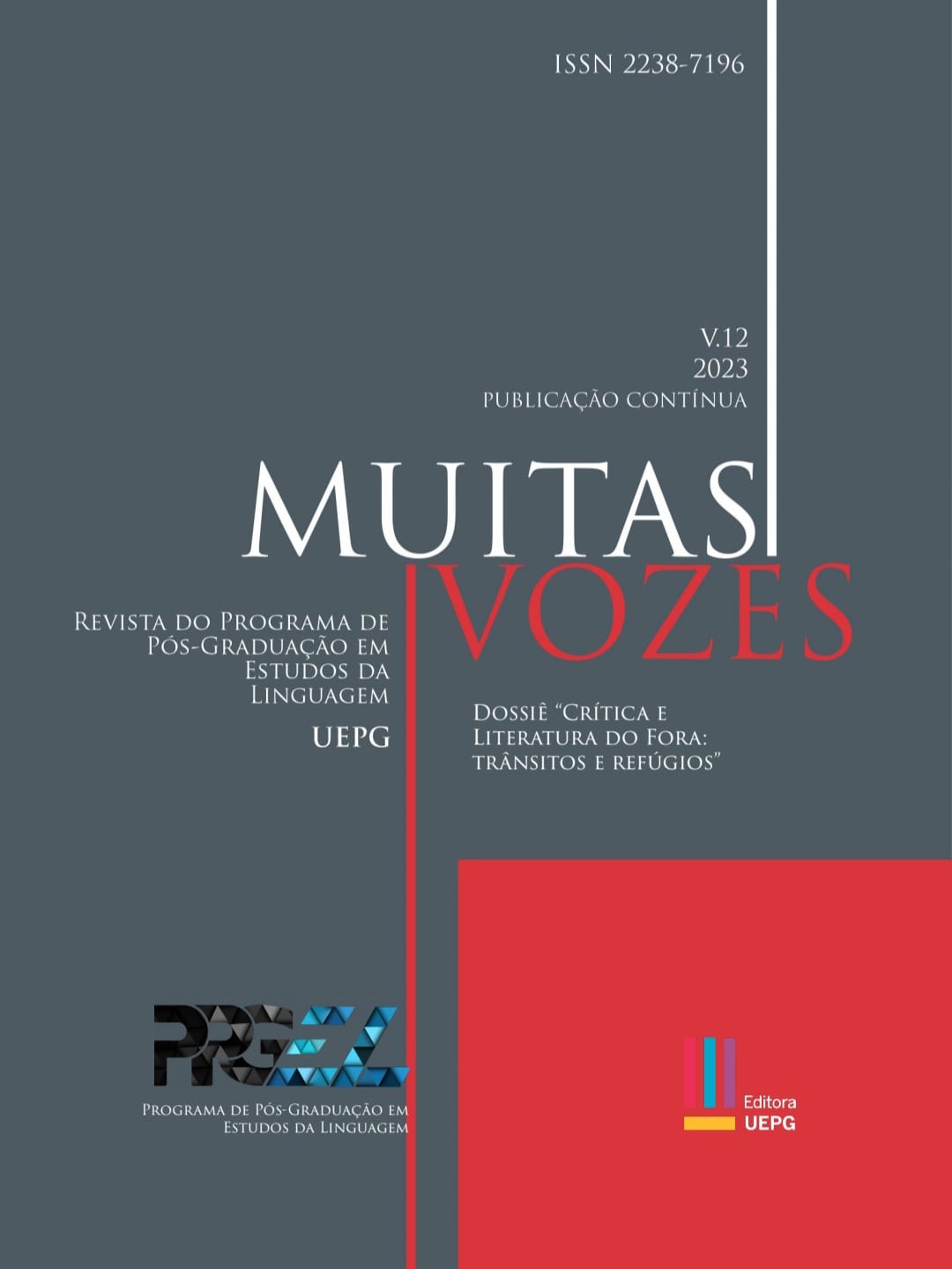EM PASSO DE TANGO NO CALOR CARIOCA: ERRÂNCIA E DESPERTENCIMENTO EM TODOS OS PECADOS DO MUNDO, DE NORBERTO PRESTA
Resumo
Inserida no debate sobre as manifestações do “pensamento do fora” no cenário da literatura latino-americana contemporânea, proponho uma leitura dos movimentos errantes do personagem Manuel, de origem argentina, pelo Rio de Janeiro em Todos os pecados do mundo: romance carioca. Tomo por fundamentos os conceitos de “estrangeiro” de Néstor Canclini (2016) e de Julia Kristeva (1994) para analisar a identidade desterritorializada do protagonista da trama. A estraneidade de Manuel, compreendida basicamente através de seu modo de andar e também de sua peculiar tentativa de enraizamento na cidade, permite concluir que o mesmo habita um entre-lugar entre culturas que conforma a representação simbólica do despertencimento. Aludo também ao caráter do fora presente no trânsito constitutivo do romance, enquanto ficção, com as formas autoficcionais ou alterficionais, conforme propõe Evandro Nascimento (2017) e ainda entre o estatuto da ficção e do testemunho do mundo, conforme o entendimento de Julián Fuks (2017).
Downloads
Downloads
Publicado
Como Citar
Edição
Seção
Licença
Copyright (c) 2024 Muitas Vozes

Este trabalho está licenciado sob uma licença Creative Commons Attribution 4.0 International License.

Este obra está licenciado com uma Licença Creative Commons Atribuição 4.0 Internacional.
Transferência de direitos autorais: Caso o artigo submetido seja aprovado para publicação, JÁ FICA ACORDADO QUE o autor AUTORIZA a UEPG a reproduzi-lo e publicá-lo na REVISTA MUITAS VOZES, entendendo-se os termos "reprodução" e "publicação" conforme definição respectivamente dos incisos VI e I do artigo 5° da Lei 9610/98. O ARTIGO poderá ser acessado tanto pela rede mundial de computadores (WWW - Internet), como pela versão impressa, sendo permitidas, A TÍTULO GRATUITO, a consulta e a reprodução de exemplar do ARTIGO para uso próprio de quem a consulta. ESSA autorização de publicação não tem limitação de tempo, FICANDO A UEPG responsável pela manutenção da identificação DO AUTOR do ARTIGO.



